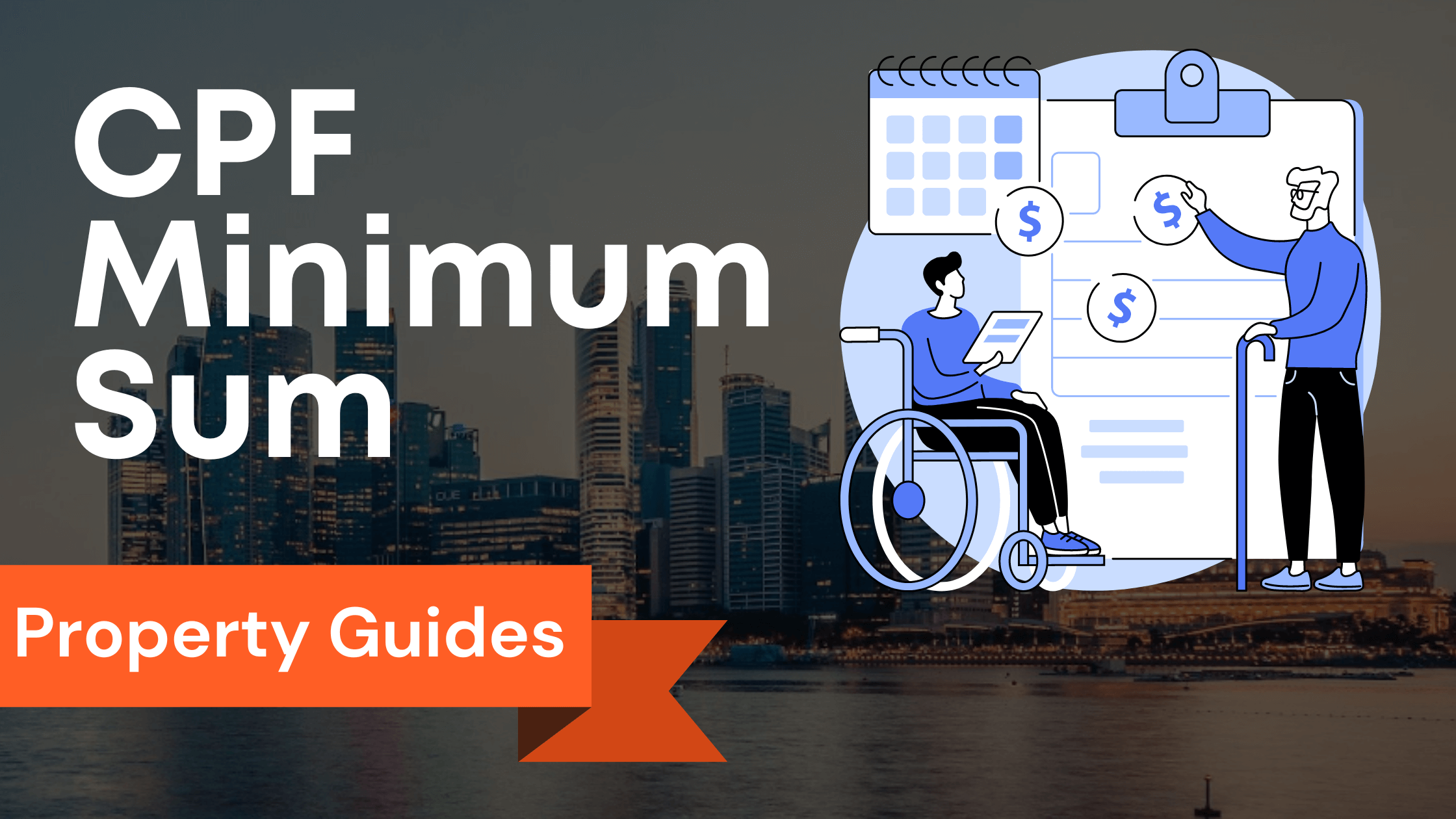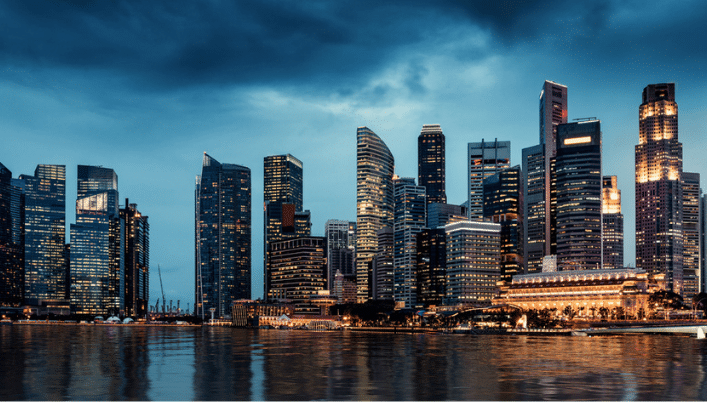
In this article, we will explore the trends and performance of both landed and non-landed properties, as well as the factors influencing their demand and prices.
We will also examine the challenges and prospects for sustainable growth in the property market and the role of the Urban Redevelopment Authority (URA) in shaping this dynamic industry.
Finally, we will review the performance of the property market in Q1 2023, analyzing the price momentum and shifts in demand.
Key Takeaways
- Factors Affecting Prices: Property prices in Singapore are influenced by supply and demand dynamics, government policies, economic conditions, and market sentiment, leading to fluctuations.
- Government Measures: The Singapore government implements cooling measures, stamp duties, and regulations on foreign ownership to maintain market stability and prevent speculative activities.
- Prime Investment Areas: Districts like Orchard Road, Marina Bay, Sentosa, and the Central Business District are highly attractive for property investments due to their prime locations and luxurious developments.
- Property Price Index (PPI): The Property Price Index (PPI) is a crucial indicator that tracks changes in property prices over time, providing insights into market trends and serving as a benchmark for valuation and investment decisions.
- PPI’s Importance: The PPI is vital for buyers, sellers, developers, and financial institutions to gauge market conditions, assess price movements, and make informed decisions about property investments.
- Interpreting PPI Changes: Changes in the PPI indicate price movement directions. A rise suggests increasing prices, while a decline signals potential correction, aiding investors and homeowners in understanding market trends.
- Private Housing Overview: Private housing in Singapore caters to high-net-worth individuals, including condominiums, landed houses, and penthouses, offering diverse options for buyers.
- Trends in Private Home Prices: Private home prices experience fluctuations influenced by market demand, government measures, economic conditions, and location. Monitoring these trends is crucial for informed investment decisions.
- Factors Influencing Private Home Prices: Land scarcity, construction costs, developer strategies, market sentiment, and government regulations impact the affordability and value of private residential properties.
- 2022 Impact on Property Prices: Economic challenges in 2022, such as the global pandemic, affected property prices and market dynamics. Job market uncertainties, reduced foreign investments, and changing preferences contributed to price shifts.
Introduction to Singapore Property Market Trends
Factors affecting property prices in Singapore
Several factors affect property prices in Singapore, including supply and demand dynamics, government policies, economic conditions, and market sentiment.
The interplay of these factors creates fluctuations in the property market.
Impact of government policies on the property market
The Singapore government has implemented various measures to manage the property market and ensure affordability for its citizens.
These measures include cooling measures, stamp duties, and regulations on foreign ownership.
They are designed to maintain stability in the market and prevent speculative activities from driving up property prices.
Popular areas for property investments in Singapore
When it comes to property investments in Singapore, certain areas are considered highly attractive.
Districts such as Orchard Road, Marina Bay, Sentosa, and the Central Business District are known for their prime locations and luxurious developments.
These areas offer high-end properties and a prestigious lifestyle that appeals to many investors.
Understanding the Property Price Index and Its Significance
Understanding the concept of the Property Price Index
The Property Price Index (PPI) is a key indicator used to track changes in property prices over time.
It provides insights into the overall market trends and serves as a benchmark for property valuation and investment decisions.
Importance of the Property Price Index in the real estate market
The Property Price Index is crucial for market participants, including buyers, sellers, developers, and financial institutions.
It helps them gauge market conditions, assess price movements, and make informed decisions.
The PPI serves as a reliable tool for monitoring and analyzing the performance of the property market.
Interpreting changes in the Property Price Index
Changes in the Property Price Index can indicate the direction and magnitude of price movements in the market.
A rise in the index suggests increasing property prices, while a decline indicates a potential correction.
Investors and homeowners should carefully analyze these changes to understand market trends and make strategic decisions.
Analysis of Private Home Prices in Singapore

Overview of the private housing market in Singapore
The private housing market in Singapore represents the upscale residential segment, catering to high-net-worth individuals and families.
It includes various types of properties, such as condominiums, landed houses, and penthouses, providing diverse options for buyers.
Trends and patterns in private home prices
Private home prices in Singapore have experienced fluctuations in recent years.
Price movements are influenced by factors such as market demand, government measures, economic conditions, and location.
It is essential to closely monitor these trends to make well-informed investment decisions.
Factors influencing the rise or fall of private home prices
Several factors influence the rise or fall of private home prices in Singapore.
These include land scarcity, construction costs, developer sales strategies, market sentiment, and government regulations.
Changes in these factors can impact the affordability and value of private residential properties.
The Impact of 2022 on Property Prices and Market Dynamics
Impact of economic factors on property prices
In 2022, the Singapore property market faced various economic challenges.
The global pandemic and its economic repercussions impacted property prices and market dynamics.
Uncertainties in the job market reduced foreign investments, and changing consumer preferences contributed to shifts in property prices.
Government measures and their impact on the property market
The Singapore government introduced measures to stabilize the property market and address affordability concerns.
These measures included tightening loan-to-value ratios, implementing additional buyer’s stamp duty, and restricting foreign ownership.
While these measures aimed to promote a sustainable property market, they had short-term effects on property prices and market activity.
Outlook for property prices in Singapore in 2023
Looking ahead to 2023, property market experts predict a moderate recovery and steady growth in property prices.
Economic stabilization and the gradual relaxation of travel restrictions are expected to contribute to market improvements.
However, it is essential to closely monitor market dynamics and changing conditions for accurate predictions.
Exploring the HDB Market: Resale Prices and Demand
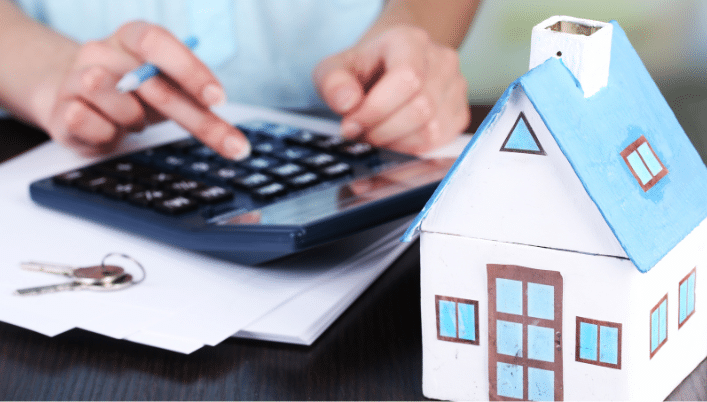
Overview of the HDB resale market
The Housing and Development Board (HDB) resale market in Singapore is a significant component of the property market.
It involves buying and selling HDB flats that are no longer under leasehold and are eligible for resale.
The HDB resale market caters to Singaporean citizens and provides affordable housing options.
Factors influencing the resale prices of HDB flats
Several factors influence the resale prices of HDB flats, including location, flat size, lease remaining, amenities, and the overall demand for public housing.
These factors play a crucial role in determining the price levels and market activity in the HDB resale market.
Demand and supply dynamics in the HDB resale market
The demand for HDB resale flats is influenced by various factors, including population growth, affordability, government policies, and changing housing preferences.
The supply of HDB flats is determined by new construction projects and the number of flats reaching the end of their lease terms.
The interplay between demand and supply dynamics affects the overall performance of the HDB resale market.
Unveiling the Landed Property Market: Trends and Performance
Landed properties in Singapore have always been highly sought-after due to their exclusivity and prestige.
Market trends indicate that the demand for landed properties has remained consistently strong over the years.
The prices of landed properties have seen a steady increase, with average prices per square foot reaching new heights.
This surge is largely driven by the limited supply of landed properties.
As a result, these properties have become attractive investment options for both local and foreign buyers.
However, the landed property market experiences variations in performance across different regions.
The Central Area, including districts like Bukit Merah, has historically shown the highest prices for landed properties.
The demand for housing in these prime locations has contributed to the appreciation of property prices.
On the other hand, regions outside the Central Area have seen more moderate price increments.
Nevertheless, all regions have experienced positive growth in the past few years, further solidifying the strength of the landed property market in Singapore.
Several factors influence the demand and prices of landed properties.
One of the key drivers is the stability and growth of the Singapore economy.
As Singapore remains an attractive hub for businesses and investments, the demand for quality residential homes continues to rise.
Additionally, the government’s land acquisition and development policies play a crucial role in shaping the availability and affordability of new landed properties.
An In-Depth Look at Non-Landed Property Prices and Supply

Non-landed properties, including private condominiums and executive condominiums, form a significant portion of the residential market in Singapore.
The prices of these properties are influenced by various factors, including market demand, location, and tenure.
The overall trend indicates an upward movement in prices over the years.
The supply and demand dynamics of non-landed properties have a significant impact on their prices.
Developers closely monitor the market to ensure that the supply meets the demand.
However, the availability of land for development poses a challenge in maintaining a balanced market.
The government’s regulations and land allocation policies play a critical role in managing the supply of non-landed properties, ensuring that the market remains stable.
The affordability of non-landed properties is a key concern for many prospective buyers.
The prices of private condominiums, in particular, have seen substantial increases, making it less accessible for certain segments of the population.
To address this issue, the Singapore government has implemented measures to moderate price increases and provide affordable housing options for Singaporeans.
These initiatives include the provision of public housing and the regulation of mortgage loans.
Sustainable Growth in Singapore’s Property Market: Challenges and Prospects
Achieving sustainable growth in the property market is a continuous endeavor for Singapore.
The government has implemented various measures to ensure the long-term stability and affordability of the housing market.
These measures focus on balancing the demand and supply dynamics, managing price increases, and providing diverse housing options for different segments of the population.
However, several challenges persist.
The high demand for housing in Singapore, coupled with limited land availability, creates a constant need for innovative solutions in urban planning and development.
Additionally, the impact of external factors, such as economic fluctuations and global events, can influence the property market and pose challenges to its sustainability.
Despite the challenges, the prospects for the future of the property market in Singapore remain positive.
The government’s commitment to sustainable growth and the implementation of effective policies will contribute to the continued success of the market.
With ongoing development projects and the integration of technology in urban planning, Singapore’s property market is poised for further growth and resilience.
The Role of Urban Redevelopment Authority (URA) in Shaping the Market
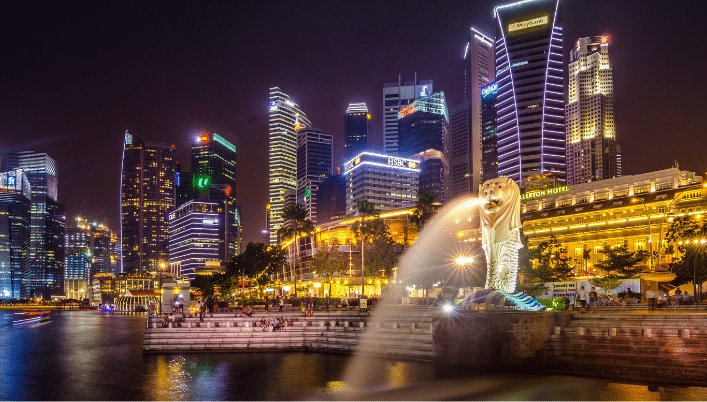
The Urban Redevelopment Authority (URA) plays a crucial role in regulating and planning the property market in Singapore.
The URA is responsible for formulating and implementing guidelines and policies that govern land use, zoning, and property development in the country.
These regulations ensure that the property market operates in an orderly and sustainable manner.
The impact of URA guidelines and policies on property prices cannot be understated.
The URA’s land allocation and development control measures directly influence the availability and supply of properties, which in turn affect their prices.
The URA also provides guidance on various aspects of property development, including design guidelines, building height restrictions, and land use mix, to maintain the quality and sustainability of Singapore’s built environment.
Q1 2023 Property Market Review: Price Momentum and Demand Shifts
The performance of the property market in Q1 2023 was influenced by various factors, including market conditions, government policies, and shifts in demand.
The review indicates that property prices continued to show positive momentum, albeit at a more moderate pace compared to previous quarters.
This moderation in price increases reflects the government’s efforts to ensure a stable and sustainable market.
Different property segments experienced varying price momentum.
Private property prices saw a steady increase, driven by the strong demand and limited supply of these properties.
On the other hand, public housing prices remained relatively stable, reflecting the government’s commitment to providing affordable housing options for Singaporeans.
The shift in demand for housing also influenced property prices.
Upgrader demand, driven by the desire for better living conditions and investment opportunities, contributed to the price appreciation of certain property types.
Additionally, the impact of foreign buyers on the market cannot be overlooked, as their demand for Singapore properties adds to the overall demand and influences prices in certain segments.
Insights into Private Residential Units: Pricing and Market Trends
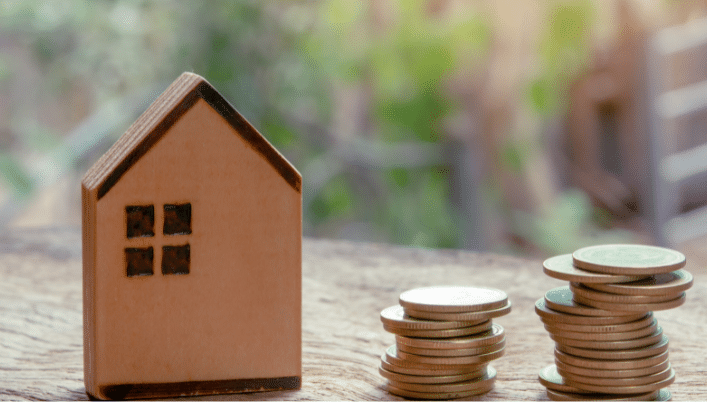
Factors influencing the pricing of private residential units in Singapore
When it comes to pricing private residential units in Singapore, several key factors come into play.
The location of the property is often one of the most significant factors.
Properties located in prime areas, such as the city center or near established amenities, tend to command higher prices.
Other factors that influence pricing include the size and condition of the units, the reputation of the developer, and the overall demand for properties in a specific area.
Market trends in the private residential property sector
The private residential property sector in Singapore has witnessed several market trends in recent years.
One of the notable trends is the increase in property prices, driven by factors such as limited land supply and robust demand from both local and foreign buyers.
Despite occasional fluctuations, the overall trajectory has been upward, reflecting the desirability of properties in the city-state.
Affordability of private residential units in Singapore
With the rise in property prices, affordability has become a concern for many prospective buyers.
The Singapore government has implemented various measures to address this issue and improve housing affordability.
These measures include the introduction of cooling measures to stabilize prices, the provision of public housing options, and initiatives to promote home ownership among Singaporeans.
Singapore’s Real Estate Landscape in the First Quarter of 2023
An overview of the property market in Singapore during the first quarter of 2023
The first quarter of 2023 provided insights into the performance of the Singapore property market.
During this period, the market experienced continued growth, with transactions and prices of private residential units showing positive signs.
The market remained active, with many buyers and investors actively seeking property purchase opportunities.
The performance of different property types in Singapore during this period
Various property types performed differently during the first quarter of 2023.
Condo units continued to attract buyers, with new launches generating significant interest.
The transacted prices of non-landed private residential homes rose by 0.
4% compared to the previous quarter, indicating a healthy market demand.
Comparison of property prices in Singapore with other global cities, such as Hong Kong
When comparing property prices in Singapore with other global cities, such as Hong Kong, Singapore has shown resilience and stability.
While property prices in Hong Kong skyrocketed in recent years, Singapore’s market experienced a more moderate growth pattern.
This comparison highlights the attractiveness of Singapore’s property market and its ability to maintain a balance between demand and prices.
Navigating the Affordability Gap: Private Property Prices and Buyer Demand
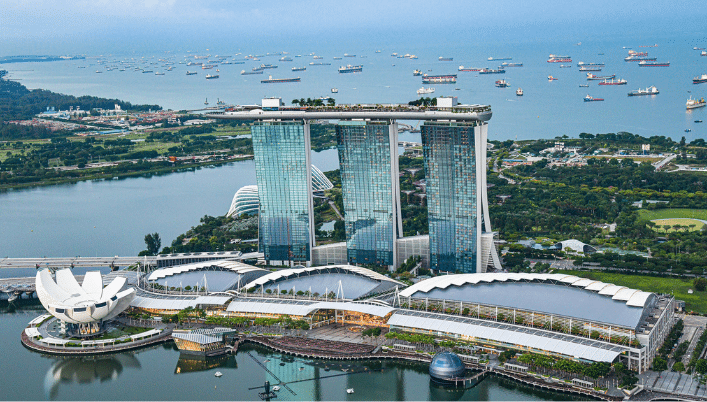
The impact of increasing private property prices on buyer demand
As private property prices rise, the affordability gap between buyers’ purchasing power and property prices widens.
This has an impact on buyer demand, as some potential buyers may be priced out of the market.
However, Singapore’s property market remains attractive, and buyers continue to seek opportunities despite the challenges posed by increasing prices.
Government initiatives to address the affordability gap in the property market
The Singapore government has implemented various initiatives to address the affordability gap in the property market.
For example, the government provides housing subsidies, grants, and schemes to help first-time homebuyers and middle-income families purchase their own homes.
Additionally, the Central Provident Fund (CPF) offers financial assistance and housing options for Singaporeans.
Outlook for private property prices and buyer demand in the near future
Looking ahead, the outlook for private property prices and buyer demand remains positive.
While there may be occasional fluctuations and adjustments in the market, Singapore’s strong fundamentals, economic stability, and regulations will continue to support a healthy property market.
Property developers are also adapting to market conditions, offering a range of residential options to cater to different buyers’ needs and budgets.
Factors Influencing Prospective Buyers in the Singapore Property Market
Key factors that influence buyers’ decisions in the Singapore property market
Buyers in the Singapore property market consider various factors when making purchasing decisions.
Location is often a primary consideration, with buyers looking for properties in well-connected areas with convenient access to amenities such as schools, shopping malls, and transportation.
The condition of the property, its potential for capital appreciation, and suitability for their lifestyle also play significant roles in their decision-making process.
The role of location, amenities, and connectivity in property purchase decisions
Location, amenities, and connectivity are crucial factors in property purchase decisions.
Properties situated in desirable neighborhoods or near established amenities tend to attract higher interest from buyers.
Easy access to transportation hubs, business districts, and recreational facilities also contribute to the appeal of a property.
Impact of borrowing costs and geopolitical tensions on buyers’ confidence
Buyers’ confidence in the property market can be influenced by factors such as borrowing costs and geopolitical tensions.
Rising interest rates or uncertain economic conditions may make buyers more cautious about making property purchases.
Similarly, geopolitical tensions can create uncertainties that affect market sentiments and buyer confidence.
Monitoring these factors is essential for buyers and property market participants to make informed decisions.
A Closer Look at Home Prices and Market Resilience Amidst Uncertainty
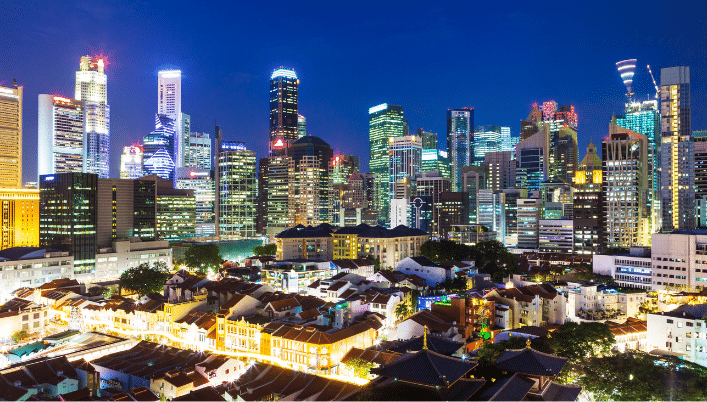
Analysis of housing price trends in Singapore amidst economic uncertainties
Despite economic uncertainties, the Singapore property market has shown resilience in the face of challenges.
Housing prices have remained relatively stable, with periodic adjustments to maintain a sustainable market.
The government’s proactive measures and regulations have played a crucial role in maintaining market stability.
Resilience of the Singapore property market during challenging times
The Singapore property market has demonstrated resilience during challenging times.
Despite external factors such as the COVID-19 pandemic, the market has adapted and continued to attract buyers and investors.
This resilience can be attributed to Singapore’s strong economic fundamentals, reliable legal framework, and effective policies that maintain market stability.
Comparison of home prices in different housing segments, such as HDB flats and private properties
The Singapore property market consists of different housing segments, including public and private housing.
HDB flats, which are subsidized by the government, cater to the housing needs of Singaporeans.
Private properties, such as condominiums and landed houses, offer a wide range of options for buyers with different preferences and budgets.
The prices of these housing types vary based on factors such as location, size, and market demands.
Conclusion
Step into a world of possibilities as we delve into the dynamic landscape of Singapore’s property market.
From soaring skyscrapers to charming HDB flats, the market paints a picture of resilience, innovation, and opportunity.
Join us on a journey through the factors shaping property prices, influencing buyer decisions, and molding the city-state’s real estate scene.
Embracing Change: Factors Driving Property Prices
Uncover the intricate dance of supply and demand, government policies, economic conditions, and sentiment that shapes property prices.
The interplay of these forces creates a mesmerizing symphony of fluctuations and opportunities.
Discover the impact of government measures, from cooling strategies to stamp duties, and how they maintain equilibrium in the market, preventing speculative frenzies.
Prime Investments: Exploring Attractive Property Areas
Venture into Singapore’s most coveted property enclaves, where luxury and prestige converge.
From the iconic Orchard Road to the picturesque Marina Bay, these districts are a playground for high-end developments and visionary investments.
Let’s explore the charm of these prime locations and the allure they hold for discerning investors seeking both opulence and returns.
Decoding the Property Price Index: Insights & Significance
Unveil the key to deciphering market trends: the Property Price Index (PPI).
Journey through its importance to buyers, sellers, developers, and financial institutions alike.
The PPI is your compass, guiding you through the ever-shifting tides of property valuation and investment decisions.
Witness how changes in the index can unveil a world of possibilities, from surging growth to potential corrections.
Navigating 2023: Insights from Q1 & Future Predictions
Get an exclusive glimpse into the first quarter of 2023 and the whispers of what lies ahead.
Witness the ebb and flow of property prices, market shifts, and evolving demand.
From private residential units to HDB resale market dynamics, gain insights into market performance that will help you navigate the evolving landscape and make informed investment choices.
Prospects & Challenges: Mapping Sustainable Growth
Unravel the challenges and triumphs in Singapore’s quest for sustainable property market growth.
Discover how government initiatives bridge the gap between affordability and aspiration.
Explore the role of the Urban Redevelopment Authority (URA) in shaping the skyline and setting the stage for a thriving urban landscape that harmonizes progress with preservation.
Investment Wisdom: Navigating Uncertainty
Step into the shoes of the astute property investor armed with the knowledge to navigate uncertainty.
Uncover the secrets to informed decisions in the face of economic challenges, geopolitical tensions, and ever-changing borrowing costs.
Let’s decode the factors that influence buyers’ confidence and the resilience that defines the Singapore property market.
A Vision of Tomorrow: Emerging Trends & Opportunities
Gaze into the crystal ball and envision the future of Singapore’s property market.
Witness the emergence of new housing segments, innovative developments, and sustainable solutions.
As Singapore evolves, seize the opportunity to be a part of its captivating real estate journey, where every property holds the promise of growth, prosperity, and a better tomorrow.
Frequently Asked Questions
What is the current situation of property prices in Singapore?
The current situation of property prices in Singapore is relatively stable.
However, there have been some fluctuations in certain segments of the market.
What are the factors that influence the prices of non-landed properties in Singapore?
The prices of non-landed properties in Singapore are influenced by various factors such as housing supply, demand from buyers, and economic conditions.
How is the sustainability of the property market in Singapore?
The property market in Singapore is known for its sustainability.
The government has implemented measures to ensure a stable and sustainable property market.
What is the latest percentage change in Singapore property prices?
The latest percentage change in Singapore property prices is 0.4%.
How do Singaporeans perceive the current property market?
Singaporeans consider the current property market to be relatively stable, with gradual price increases.
What is the average price per square foot (PSF) of properties in Singapore?
The average price per square foot of properties in Singapore is currently 5.9%.
How much has the price momentum eased in the Singapore property market?
The price momentum in the Singapore property market has eased by 2.6%.
What is the projected price change for the upcoming period?
The projected price change for the upcoming period is 0.2%.
What are the main factors driving the high property prices in Singapore?
The high property prices in Singapore are driven by factors such as strong demand, limited supply, and attractive investment opportunities.
How does the property price in June 2023 compare to June 2022?
The property price in June 2023 is expected to be 0.3% higher compared to June 2022.












